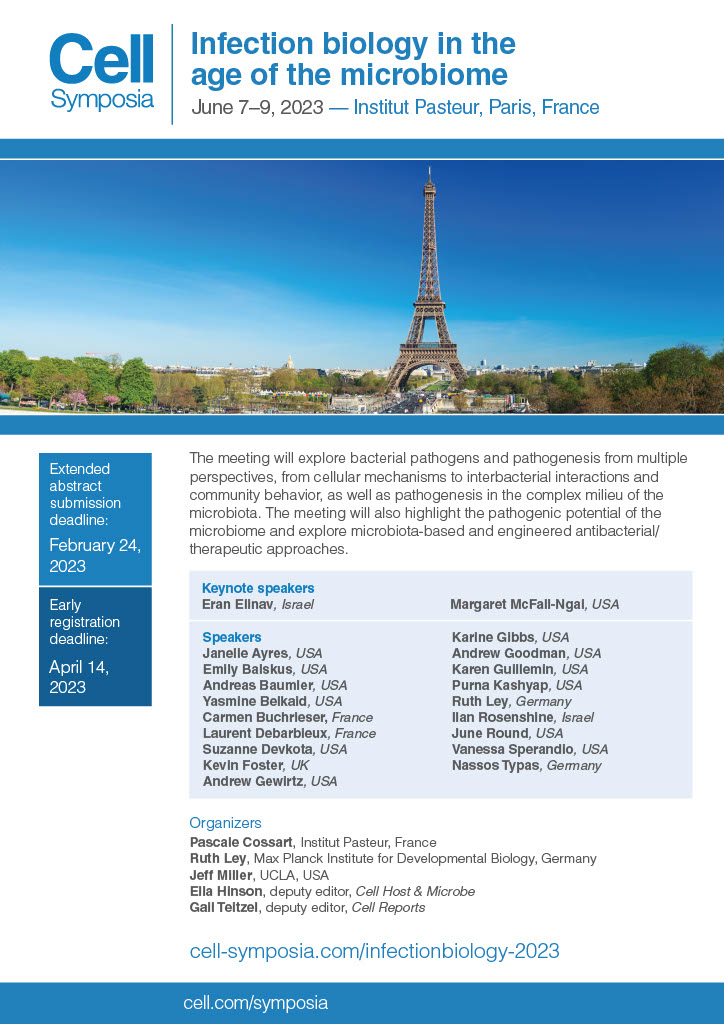
 Agenda
Agenda
Cell Symposium: Infection biology in the age of the microbiome, June 7-9
 Classical studies of microbiology neglected the roles of resident communities, within which most pathogens function, creating simpler models for studying infection. Traditionally, this area of research has been separated from studies of so-called good bugs. Yet recently, a microbial community view of pathogenesis has taken shape: one in which molecules, machinery, and mechanisms that were discovered studying bacterial infection are now being applied to understand the interplay between pathogens, resident microbes, and the host environment. The integration of next-generation sequencing, metabolomics, and genome-engineering techniques has expanded the horizons of infection biology, enabling the interrogation of increasingly complex systems.
Classical studies of microbiology neglected the roles of resident communities, within which most pathogens function, creating simpler models for studying infection. Traditionally, this area of research has been separated from studies of so-called good bugs. Yet recently, a microbial community view of pathogenesis has taken shape: one in which molecules, machinery, and mechanisms that were discovered studying bacterial infection are now being applied to understand the interplay between pathogens, resident microbes, and the host environment. The integration of next-generation sequencing, metabolomics, and genome-engineering techniques has expanded the horizons of infection biology, enabling the interrogation of increasingly complex systems.
This meeting, which will take place from June 7 to 9 at the Institut Pasteur, will explore bacterial pathogens and pathogenesis from multiple perspectives, from cellular mechanisms to interbacterial interactions and community behavior, as well as pathogenesis in the complex milieu of the microbiota. The meeting will also highlight the pathogenic potential of the microbiome and explore microbiota-based and engineered antibacterial/therapeutic approaches.
Organizers
• Pascale Cossart, Institut Pasteur, France
• Ruth Ley, Max Planck Institute for Developmental Biology, Germany
• Jeff F. Miller, UCLA, USA
• Ella Hinson, deputy editor, Cell Host & Microbe
• Gail Teitzel, deputy editor, Cell Reports